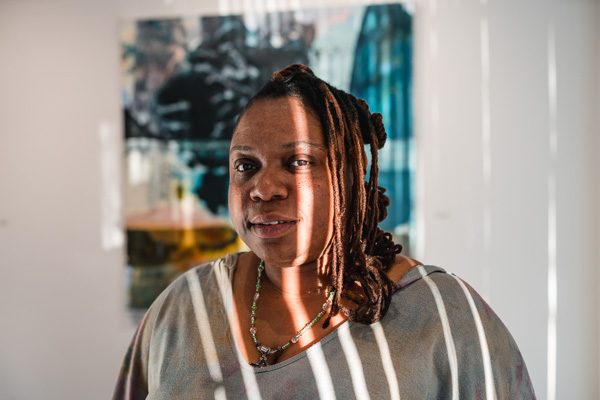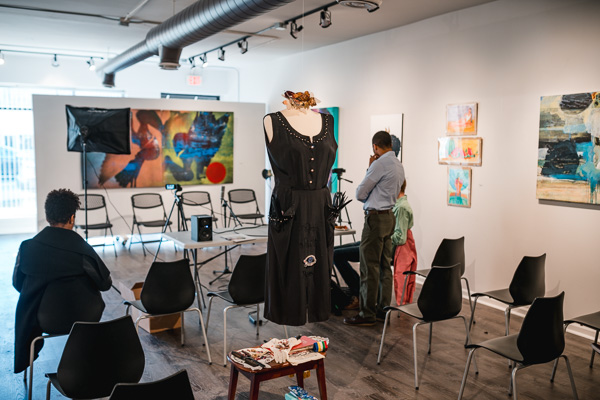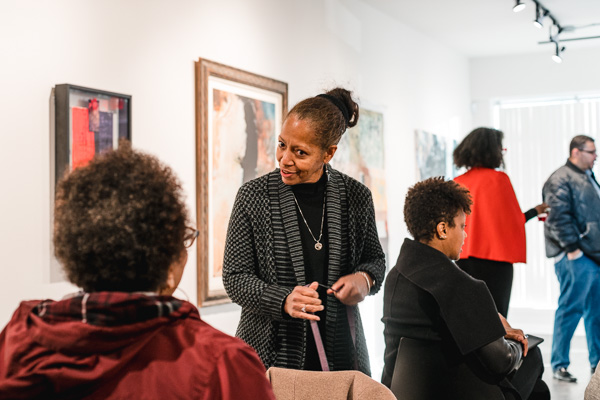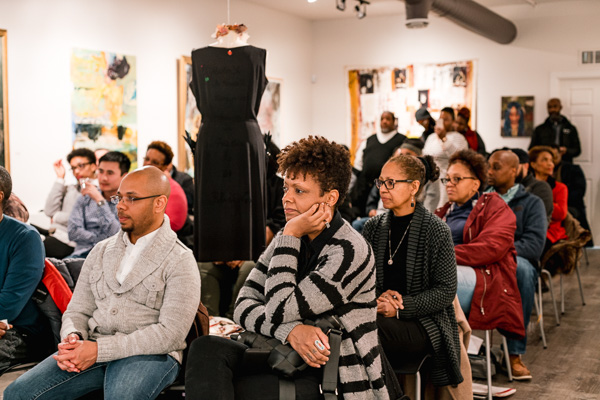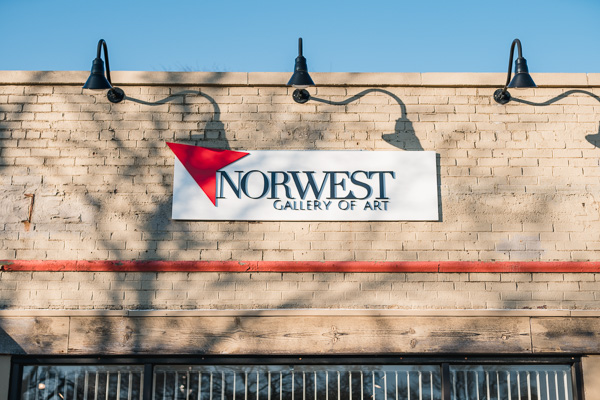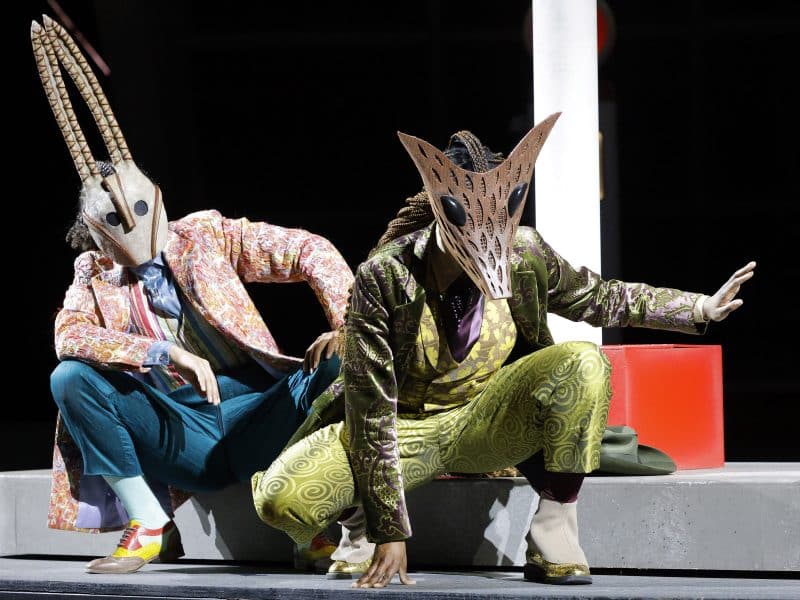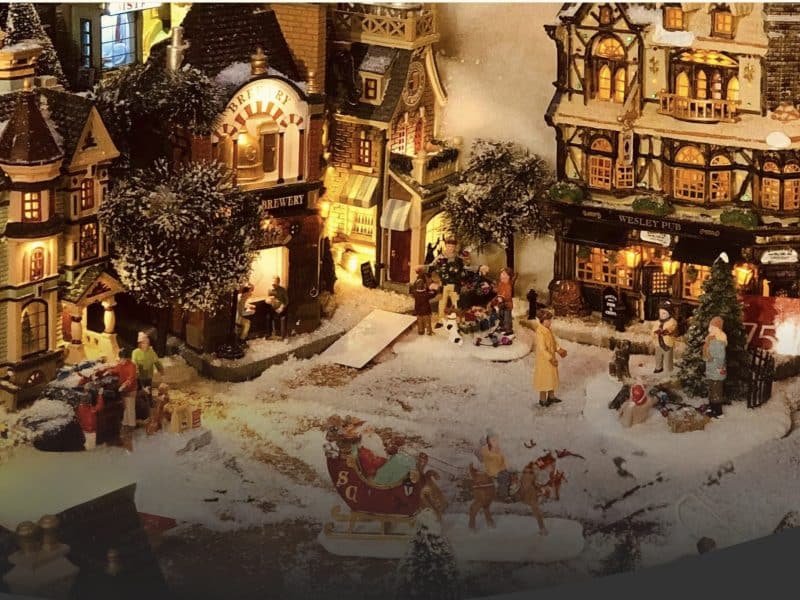NorWest Art Gallery brings local, urgent art and conversation to Grandmont Rosedale
Part exhibition space, part gathering space, the NorWest Art Gallery invites creators, curators, and adorers of art to engage with one another.
With an hour to spare before a film screening, the NorWest Art Gallery team is hard at work.
Director and chief curator Asia Hamilton moves a painting bigger than everyone in the room and reveals two stubborn black nails that must be painted the same white as the wall. Six rows of black chairs need to be set up. Someone solves the puzzle of correctly plugging in the overhead projector. By the time the crowd arrives, the space is back in tip-top shape, paintings gleaming under ethereal lights and popcorn popping in the kitchen.
Hamilton is a very hands-on director. She not only carefully selects the art and artists presented there, but also takes matters into her own hands—moving canvases on her own, painting nails—until the space meets her fastidious approval.
With businesses like Pages Bookshop and Detroit Vegan Soul opening, Detroit’s Grandmont Rosedale neighborhood has seen a great deal of entrepreneurship of late. And the NorWest Art Gallery, located within the Grand River Annex, a multifunctional space intended for pop-ups and gatherings where small businesses and independent makers can gain exposure, is yet another to open in the last couple years. Part exhibition space, part gathering space, NorWest Art Gallery invites creators, curators, and adorers of art to engage with one another.
The gallery—whose name is a nod to the neighborhood’s Norwest Theater, torn down in 2004—opened this February after Hamilton and her team spent four months transforming an unassuming accounting firm storefront into a full-blown artistic experience..
While Grandmont Rosedale has experienced a bit of a makeover over the last few years, the neighborhood has always had a legacy of social, cultural, and artistic expression. Hamilton, who currently resides in the house she grew up in just two miles away, is well aware of its arts and culture history.
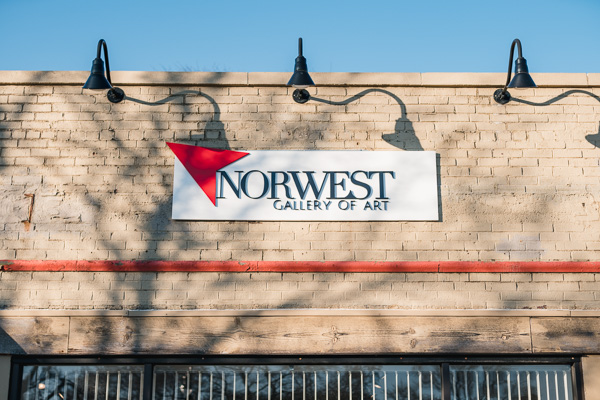
“It’s very important to bring artists that are of a higher caliber to this community,” says Hamilton, “so that they know that they can come here not to just see art, but to experience culture on a whole other level.”
A lifelong artist herself, Hamilton began her studies at College for Creative Studies before attending Columbia College and graduating with a degree in fine art. She then interned in the curatorial department of Chicago’s DuSable Museum under art icons such as photographer Dawoud Bey and writer Amiri Baraka.
Hamilton has contributed to a range of established and emergent art scenes during her time in New York and Atlanta. She felt that while many of Detroit’s art institutions referenced the historical influence of African-American art, few had their hand on the pulse of the contemporary, local scene.
That’s why NorWest will feature works from Phillip Simpson, Sabrina Nelson, Ijania Cortez, and Charles McGee—artists you may very well run into at a Detroit grocery store. It’s this proximity and immediacy that sets the NorWest Gallery apart.
The gallery’s exhibitions and programming strive to be in conversation with the political, social, and cultural discussions of the moment. The debut exhibit, “Detroit Noir: Celebration of the Black Aesthetic,” was a celebration of black history that charted many iterations of black expression over time and place. The was followed by “Anti Love Song,” an exhibit which honors legendary black funk icon Betty Davis in collaboration with Black Women Rock and is open until April 4.
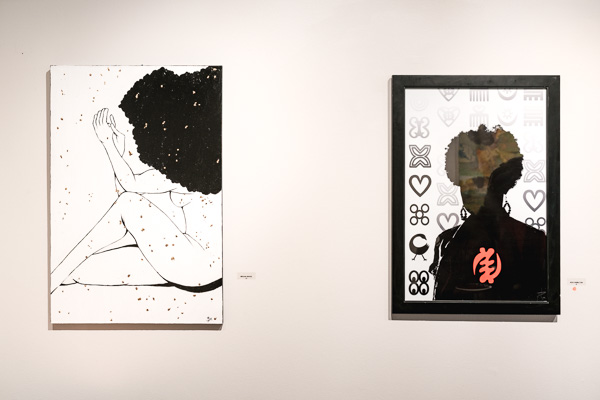
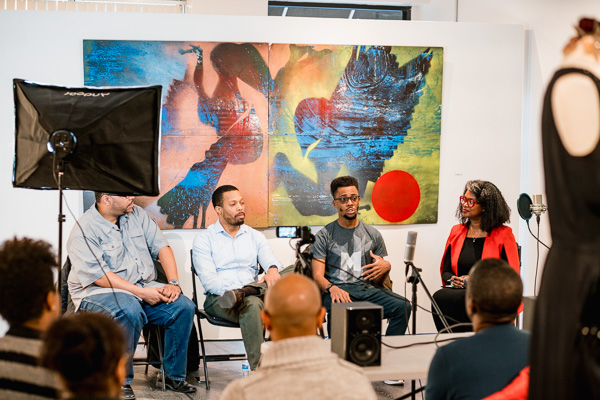
The gallery has hosted film screenings, including “The Spook Who Sat by the Door”—a movie about a black man who outsmarts the CIA to start a revolution—and has an upcoming premiere of the long-awaited Netflix film “Roxanne Roxanne” followed by a Q&A with Detroit-native and lead actress Chanté Adams.
Innovating in the local art scene is a heavy lift for one woman. That’s where NorWest co-curator Tanya Stephens comes in. Stephens is a real-estate agent by day, with an undeniable affinity for and understanding of art. An art-based communication and economic development specialist, Stephens recognized “a huge void” in the art scene upon returning to the city a year ago, and envisions a Detroit where artists and their art are respected, nourished, and celebrated.
“One of the things that we focused on … is Detroit-based artists,” says Stephens.
In a city where outside art is sometimes privileged over local offerings, NorWest wants to uplift Detroit artists who reflect the city’s strengths and struggles. Stephens thinks the art scene needs an administrative push, with a focus on arts and culture development in order for artists to really be able to make a living and build an audience in the city.
“I’d like to see [the city] more involved in ensuring that artists have a place as the city progresses,” says Stephens.
Hamilton categorizes this particular moment as a “black artistic renaissance” and encourages every independent young creative to attract new opportunities by creating what they wish to see.
“I don’t think we knew our strength. We were still trying to be apart of somebody else’s thing, so now we’re owning it,” says Hamilton. “I know you have a vision and don’t ever think that it’s out of your reach—it’s not.”
This article is part of “Detroit Innovation,” a series highlighting community-led projects that are improving the vitality of neighborhoods in Detroit, while recognizing the potential of residents to work with partners to solve the most pressing challenges facing their communities.
The series is supported by the New Economy Initiative, a project of the Community Foundation for Southeast Michigan that’s working to create an inclusive, innovative regional culture.
Photo by Nick Hagen.
